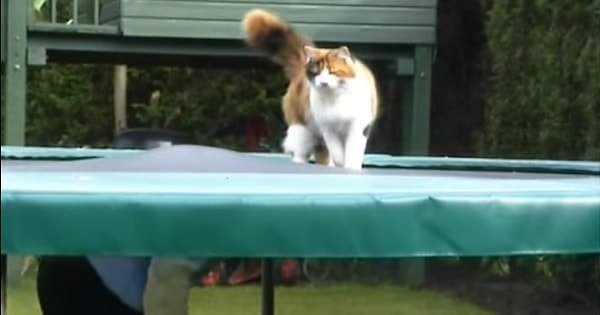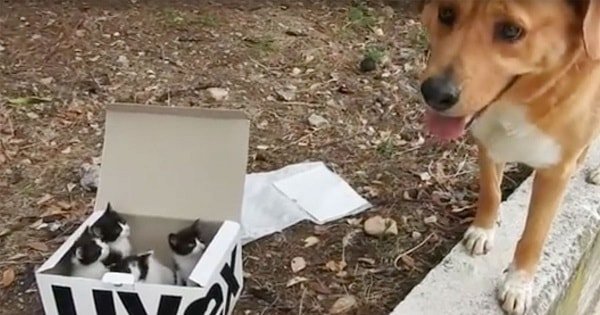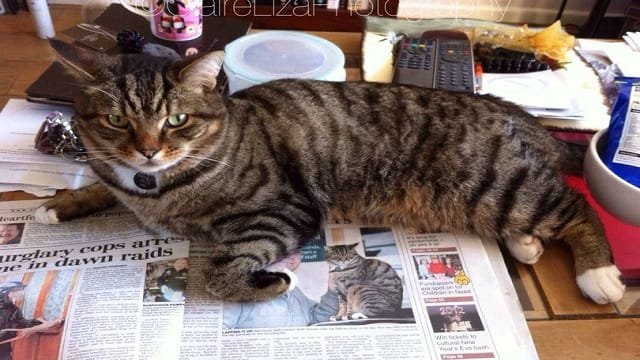FAYETTEVILLE, ARKANSAS — Even after her death, Lib Horn is still working to help Washington County’s cats and dogs.
Horn, a former director of Fayetteville’s animal shelter and a longtime animal activist, died back in November. In her will, she left a sizable donation to the city’s shelter. The amount could just top $50,000, City Attorney Kit Williams said. And, a comparable amount was left to Washington County’s shelter, said Steve Zega, county attorney.
The exact amounts won’t be known until the assets are tallied and the amounts are formally transferred to those shelters. The City Council and county Quorum Court voted last week to authorize the mayor and county judge to carry out this transfer.
How the money will be used is still yet undecided, but Fayetteville shelter officials said their portion could end up paying for a free-roaming cat room at the facility, which the City Council named after Horn on Dec. 1.
“Otherwise they [the cats] are stuck in a cage, which, although we make it comfortable, it is still a smaller area. It’s a lot better for them to have more room to roam around, more interaction, that kind of thing,” said Justine Lentz, the shelter’s animal services superintendent. “It’s very generous. Whatever we end up doing, it would be very helpful.”
Expanded cat spaces would be a very fitting tribute to Horn, who was very fond of cats, said Tony Rankin, program manager.
County Chief of Staff George Butler didn’t return a phone call Friday requesting comment about where exactly the county shelter’s money might go, but that facility struggled amid budget cuts last year.
Olivia Ann Horn was already almost 50 years old when she got involved in animal activism and first arrived at Fayetteville’s shelter.
She was born and grew up in northeast Arkansas and she was one of nine children. She studied at Arkansas State University in Jonesboro and started her adult life as a teacher up in Missouri, according to a 2005 article in the Northwest Arkansas Times.
A stint with the U.S. Department of Veterans Affairs in Washington followed, then a move to Virginia where she met some dog trainers and a professor who encouraged her to get involved with animal services.
“It was the best thing I ever did,” she said.

PHOTO BY FILE PHOTO
In this Dec. 2, 2005, file photo, Lib Horn cuddles with one of the seven dogs brought to the Fayetteville Animal Shelter after being rescued from an animal sanctuary in Baxter County.
In 1986, the Humane Society of the Ozarks and the city of Fayetteville were working to create an animal shelter which they would operate together. They posted a job opening for a shelter director. At that time, Horn was taking care of animals for the University of Arkansas and got the job.
Under her leadership, the shelter transitioned to exclusively city management, opened a clinic and hired its first staff veterinarian, according to a statement from the city.
Horn also was part of the yearslong push for a Washington County shelter, which was built just three years ago after Fayetteville said it could no longer handle the county’s burden. She also initiated the development of low-cost spay/neuter programs at both shelter locations, according to her obituary.
Making aggravated animal cruelty a felony in Arkansas was the last major goal of her life, Horn said in 2005 and the state made that change in 2009.
“I think the main thing about me is I sincerely care about animals and their well-being,” Horn said. “And I hope, as time goes by, we will give them the proper respect and dignity that they deserve. They’re God’s creatures as well as we are.”
Horn was 76 when she died back on Nov. 10 after a brief illness, according to her obituary.
Rankin began working at the shelter around 2001, around the time Horn retired as director after 14 years. Though Horn no longer worked there, she remained a fixture and mentor, Rankin said. He called her a matriarchal figure, firm and straight to the point when it came to the business of caring for the animals, but also supportive and nurturing for anyone in that business.
Less than a year after he started, Rankin said he second-guessed staying in animal services once he found a German shepherd that someone had tied to railroad tracks.
“I was just dumbfounded,” Rankin said.
But Horn told him he had to keep on caring. Others who also cared would join him, she said, and those who don’t care don’t matter.
The German shepherd, named Lucy, survived and ended up being adopted by Rankin’s mother-in-law, he said. And he’s still working to help the animals, partly because of Horn’s words today.









